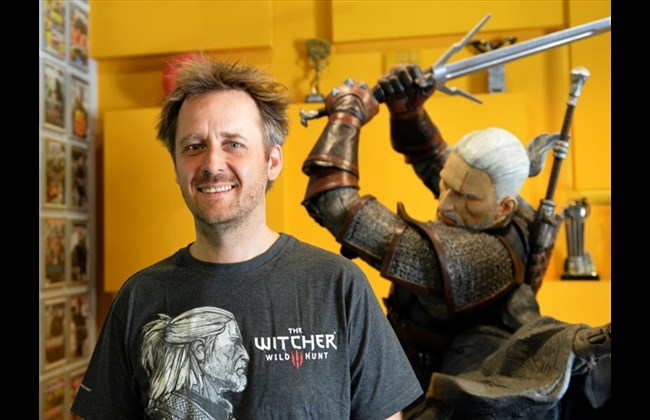
Poland’s new ambassador is a scar-faced hit man armed with two swords and potions against monsters and dragons. His name is Geralt, hero of a Polish role-playing video game bewitching the world.
“The Witcher” is the brainchild of Warsaw-based CD Project Red, one of a growing number of cutting-edge Polish IT firms out to dominate global gaming.
It sold 4 million copies of the game worldwide at 60 euros ($67) a piece in the couple of weeks after its May release. The earlier two installments in the Witcher series have sold some 8 million copies since hitting the market in 2007 and 2011.
“The Witcher 3: Wild Hunt is one of the best games ever made,” said website Gamespot of the game that is the top seller in most of the 109 countries where it was released.
“They created the largest open world in the history of video games and filled it with realistic dialogue and characters that are full of life,” said leading Polish game developer Pawel Miechowski of the game’s creators. “Plus the graphics are staggering,” the 32-year-old told AFP.
The series was even mentioned by U.S. President Barack Obamaduring a visit to Warsaw last year, after he received the second installment as a symbolic gift to smash dated stereotypes of Polandas a dreary, gray, ex-Communist country of vodka and horse-drawn carts.
“I confess, I’m not very good at video games, but I’ve been told that it is a great example of Poland’s place in the new global economy,” he said at the time.
CD Project Red co-founder Marcin Iwinski attributes the success of Polish video games to Eastern European sensibility: “We bring something new to the table, a breath of fresh air, creativity.”
The country’s video-game industry is one of the biggest in Europe, according to Daniel Sadowski, co-founder of the Nitreal Games studio and an instructor at the Polish-Japanese Academy of Information Technology. “There are around 500 independent video game studios in Poland. Every year around 100 Polish games hit the global market.”
The Warsaw-based “11 bit” studio has the hallmarks of an IT start-up. Around 40 video game developers sit in the open-plan office located in a 1970s building by a noisy expressway in an industrial part of town.
They are all men, most of them bearded, and under 30. Dressed in faded T-shirts and jeans, they are busy coding, drawing and testing ideas next to walls covered in project sketches, cartoons and calendars with game release dates.
Their last project, “This War of Mine,” was the first role-playing video game to show war from the perspective of civilians trying to survive in a besieged city, as opposed to elite soldiers.
The game, which came out late last year, won dozens of prizes and topped a weekly sales chart compiled by the digital video games distribution platform Steam.
“We’re hearing that our game has opened the eyes of many people in Russia,” Miechowski said.
“Because of the propaganda, they don’t realize that there are civilians in these war zones who have to survive under extreme conditions. Our game was a kind of catharsis for them.”
At one point in May, the various versions of The Witcher took up three of the 10 slots on the Steam chart, while another Polish game – “Dying Light” by the Techland studio in the western city ofWroclaw – came in at spot No. 5.
“The success is a result of our national character, among other things: For us nothing’s impossible. This determination to make something that no one else has made yet is crucial in video games,” Miechowski said.
“We learned how to make video games step by step, and how to reach players with a universal message,” Iwinski added.
“With The Witcher 3, we made one of the best games in the world and now we’re aiming for the top. The sky’s the limit!”
dailystar












